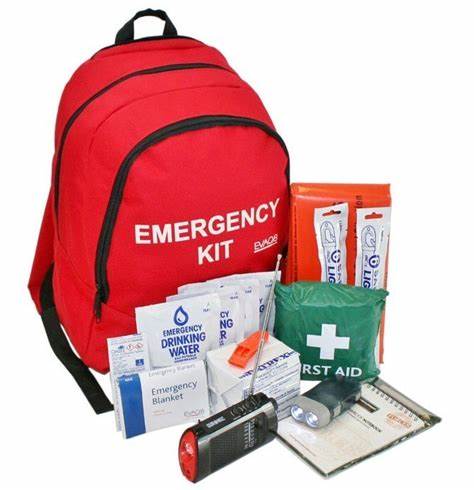In an ever-changing world, preparedness for unforeseen emergencies is not merely about stockpiling supplies and making contingency plans. While those actions are crucial, one often underestimated aspect of preparedness is financial readiness. Money plays a pivotal role in navigating and mitigating the impact of emergencies, providing a solid foundation to weather unexpected storms. Let’s explore the significance of building financial stability for emergencies.
Understanding the Importance

Emergencies come in various forms—natural disasters, health crises, job loss, or sudden economic downturns. They can disrupt life in profound ways, leaving individuals and families vulnerable. Financial preparedness acts as a safeguard against the uncertainties brought on by such events. Having a financial cushion allows for greater flexibility in addressing immediate needs, securing necessary resources, and rebuilding post-crisis.
Building a Financial Safety Net
- Emergency Fund: A fundamental aspect of financial readiness is establishing an emergency fund. This reserve should ideally cover three to six months’ worth of living expenses. It serves as a buffer, enabling individuals to manage unforeseen costs without relying on credit or depleting long-term savings.
- Cash Reserves: Cash is king, especially during emergencies when digital payment systems might falter. Having a reserve of cash on hand ensures access to immediate necessities, even in situations where traditional banking systems experience disruptions. Whether it’s a natural disaster, a power outage, or a larger-scale crisis, cash remains universally accepted and invaluable.
- Insurance Coverage: Adequate insurance coverage is another crucial element. Health, home, and automobile insurance, among others, provide a safety net in times of crisis, preventing financial devastation from medical emergencies, natural disasters, or accidents.
- Budgeting and Savings: Creating and sticking to a budget is instrumental in managing finances effectively. Allocating a portion of income to savings regularly helps build a financial cushion over time. This disciplined approach ensures resources are available when emergencies strike.
Mitigating Financial Risks
- Reducing Debt: High-interest debt can exacerbate financial strain during emergencies. Prioritizing debt reduction lessens financial burdens, freeing up resources for immediate needs when unforeseen circumstances arise.
- Diversifying Income Streams: Relying solely on one source of income increases vulnerability. Exploring diverse income streams—side hustles, investments, or freelance work—provides added stability and resilience during uncertain times.
Planning for Long-Term Financial Stability
Emergency preparedness is not just about short-term survival; it’s also about securing a stable financial future. Investing in retirement accounts, creating investment portfolios, and planning for long-term financial goals contribute to overall resilience.
Taking Action Today
Regardless of the current situation, it’s never too late to start building financial stability for emergencies. Begin by assessing your financial situation, creating a budget, and gradually building an emergency fund. Review and update insurance policies regularly to ensure they align with evolving needs.
Conclusion
Money plays a crucial role in emergency preparedness, acting as a shield against unforeseen adversities. Establishing a solid financial foundation through emergency funds, insurance, debt reduction, and diversified income sources empowers individuals and families to weather crises with greater resilience. While emergencies may be unpredictable, being financially prepared offers a sense of security and stability even in the face of uncertainty.
Remember, the key lies in taking proactive steps today to build a more resilient and secure financial future tomorrow.



